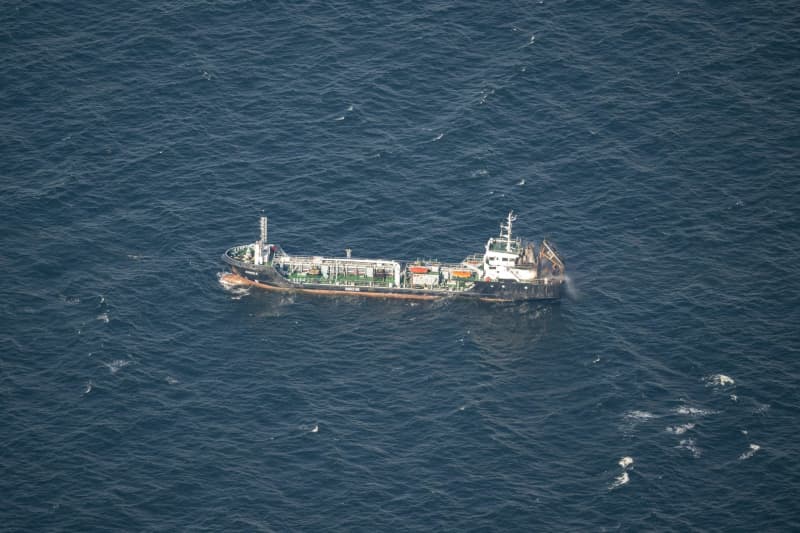On Friday, an oil tanker named Annika caught fire in the Baltic Sea off the northeastern coast of Germany, prompting a significant response from rescue officials amidst fears of an environmental catastrophe. The vessel, measuring 73 meters in length and reportedly carrying 640 tons of heavy fuel oil, was on a route from Rostock to Travemünde when the blaze broke out in the early hours of the morning. As the situation developed, the fire, which has been primarily located in the engine room of the ship, was declared largely under control by Till Backhaus, the environment minister of Mecklenburg-Vorpommern. He confirmed that the ship is to be towed to the port of Rostock for complete extinguishing of the fire, displaying the authorities’ commitment to preventing further danger.
In light of the fire, a major rescue operation was initiated to ensure the safety of those on board. All seven crew members have been successfully rescued, and reports have confirmed that there were no recorded injuries, thus alleviating initial concerns that might suggest a more severe incident. The Mecklenburg-Vorpommern environment ministry stated that, as of now, there has been no environmental damage resulting from the incident. Backhaus emphasized the need to take every possible measure to avert a more significant crisis, providing reassurance that the situation is being actively managed with a focus on environmental conservation.
The Annika is currently anchored in the Mecklenburg Bight between Kühlungsborn and Warnemünde, securely connected to a tugboat that will facilitate its towing to shore. The image of black smoke billowing from the vessel was reported to be visible from the mainland, heightening the urgency and visibility of the operation. The German Central Command for Maritime Emergencies has taken charge of coordinating the rescue efforts, displaying the organized response from maritime authorities in the face of a potentially disastrous situation.
The cause of the fire on the Annika is still under investigation and remains unknown at this time. As officials work to assess the situation more thoroughly, the focus of efforts is primarily on extinguishing the remaining flames and ensuring the safety of both human life and the surrounding environment. The incident underlines the inherent risks associated with the transportation of heavy fuel oil, especially along busy maritime routes. Authorities are likely to evaluate the circumstances that led to the fire to prevent similar occurrences in the future.
The response to this incident reflects broader concerns regarding maritime safety, environmental protection, and emergency preparedness. The successful rescue of the crew and the containment of the fire indicate a well-coordinated effort among various maritime agencies and emergency services. As this situation unfolds, further communication from government officials and environmental agencies will be crucial in maintaining transparency and public confidence regarding the management of such maritime emergencies.
In summary, the fire on the oil tanker Annika in the Baltic Sea has prompted an immediate and organized response to ensure the safety of the crew and to prevent environmental damage. As the situation stabilizes with the fire being largely controlled and the crew rescued, it serves as a reminder of the potential hazards associated with maritime transport. Investigations into the cause of the fire are ongoing, as officials remain vigilant in their efforts to protect both human and ecological interests. The coordinated response from various agencies highlights the importance of preparedness in emergency situations at sea.

